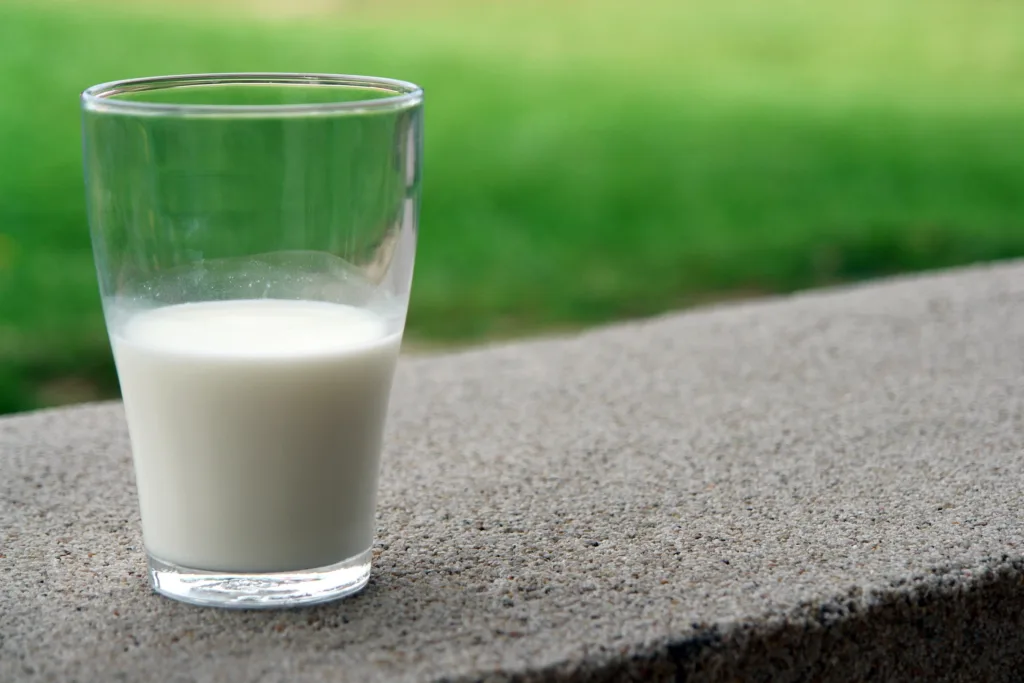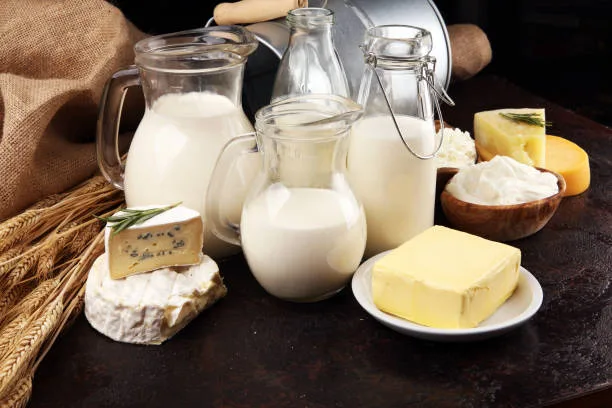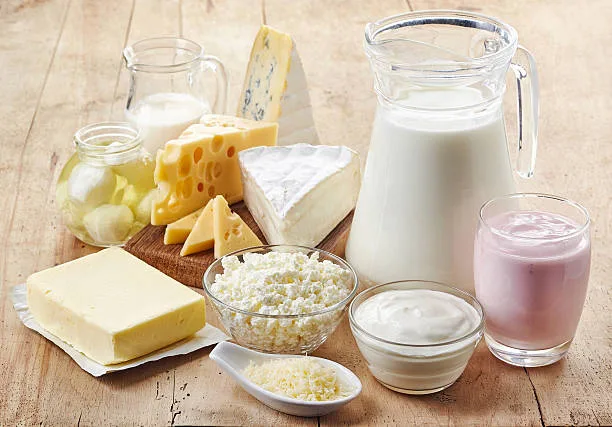I. Introduction
Hook: For years, dairy products like milk, yogurt, and cheese have been dietary staples for good reason – they provide a powerhouse of nutrition. However, emerging research now suggests dairy may also be a secret weapon for weight loss. Understanding the science behind how these nutritious foods boost fat burning can empower you to make slimming choices and reach your health goals faster.
Brief overview: Dairy provides an array of essential vitamins, minerals, nutrients and high-quality complete proteins for satiety in a low calorie package. Milk is packed with protein, calcium, potassium, B vitamins and more. Greek yogurt supplies muscle-protecting protein, gut-healthy probiotics, and bone-building calcium. Hard cheeses offer concentrated protein and vitamin D. Cottage cheese provides sustained casein protein. The unique nutritional profile of these dairy foods may optimize weight loss through several mechanisms.
Importance: With rising obesity rates, it’s crucial to leverage effective nutrition strategies for sustainable weight management. Cutting calories or fat alone often fails long-term because it is unrealistic and unsustainable. Knowing how to properly incorporate satisfying real foods like dairy into your diet can lead to better compliance, improved satiety and lasting success. The emerging science gives us insight into the multifaceted ways dairy facilitates fat burning.
Thesis: This post will break down the latest metabolic research on how dairy foods can potentially boost weight loss through appetite control, increased calorie burn, muscle building, gut health optimization, and more. Understanding the variety of mechanisms by which dairy aids weight management can help maximize results. An informed, evidence-based utilization of dairy may be the missing key to finally conquering your weight loss goals and maintaining long-term.

II. The Nutritional Composition of Dairy Products
Overview: Dairy products provide a nutritional powerhouse with a unique combination of macronutrients. Milk contains high-quality complete protein with all the essential amino acids necessary for building and preserving muscle tissue. The whey and casein proteins offer sustained nutrition for prolonged satiety. Just one cup of milk provides 8 grams of protein. Low fat milk gives you this protein boost without unnecessary extra calories or fat. Greek yogurt supplies even more concentrated amounts, with 20 grams per serving.
Yogurt and milk also have calcium and potassium for bone health, B vitamins like riboflavin and B12 for energy production, and vitamin D for immunity and metabolism. The natural sugars lactose and galactose provide carbohydrate fuel and energy. Additionally, the conjugated linoleic acid in dairy fat may offer unique metabolic benefits.
Micronutrients: Along with protein, calcium and vitamin D, dairy foods supply other vital micronutrients. This includes magnesium and phosphorus for bone health, zinc for immunity and metabolism, selenium as an antioxidant, and B vitamins for energy production. The nutritional richness of dairy foods in both macronutrients and micronutrients is what makes them so supportive for healthy weight management.
Balanced Diet: With protein for muscle retention and satiety, quality carbohydrates for energy, essential fatty acids, and a plethora of vitamins and minerals, dairy is a complete food. When enjoyed as part of a balanced calorie controlled diet, dairy can help provide lasting nutrition for effective weight loss. Think of dairy products as Mother Nature’s multivitamin.
III. Dairy’s Role in Appetite Control
Protein and Satiety: Dairy is rich in high quality protein that is slowly digested, which helps control hunger for hours while keeping you feeling full. Studies consistently show that the protein in dairy foods is the most satiating macronutrient. In fact, research finds that starting your day with a protein rich Greek yogurt, cottage cheese, or a protein shake made with milk, keeps you feeling satisfied and reduces hunger and cravings longer than carb-heavy breakfasts.
The satiating power of dairy protein can be attributed to both casein and whey. Casein coagulates in the gut to form a gel, delaying digestion, while whey is quickly absorbed. This complementary effect curbs appetite for prolonged periods.
Calorie Reduction: By increasing feelings of satiety and reducing appetite and cravings between meals, consuming dairy protein can lead to reduced overall calorie intake throughout the day. When you feel satisfied from dairy protein at breakfast and lunch, you’ll be less tempted to reach for empty calorie snacks or sweets in the afternoon. This creates a natural calorie deficit that leads to safe, sustainable weight loss over time.
Evidence: Multiple clinical studies confirm dairy’s unique appetite regulating effects that reduce hunger while increasing satiety. A review in the European Journal of Nutrition encompassing data from 13 trials found that eating dairy products reliably resulted in reduced hunger, higher fullness, lower desire to eat, and decreased calorie intake at later meals. Subjects effortlessly consumed fewer calories without any hunger or restriction.

IV. Metabolic Effects of Dairy
Metabolism: Calcium and protein in dairy can help boost your resting metabolic rate. Studies utilizing metabolic chamber equipment have shown that consuming dairy increases diet-induced thermogenesis, which is essentially the number of calories your body burns digesting food and producing heat.
Some researchers suggest that calcium may directly enhance fat breakdown in fat cells through changes in intracellular cAMP production. Other amino acids like leucine signal proteins that kickstart thermogenesis. This ramping up of your metabolism helps your body incinerate calories more efficiently all day.
Fat Metabolism: Components in dairy foods may both promote fat breakdown and inhibit fat production and storage in the body. Conjugated linoleic acid (CLA), a naturally occurring fatty acid found in dairy fat, has been shown in animal studies to reduce body fat mass and increase lean muscle mass when paired with exercise.
The amino acid leucine in dairy protein can also signal mTOR, supporting muscle growth. More muscle boosts your resting metabolism, allowing you to burn more calories around the clock.
Metabolic Rate: Numerous studies confirm dairy’s metabolism enhancing and fat burning effects. In one randomized controlled trial, obese adults who consumed 3-4 servings of milk, cheese and yogurt daily for 6 months lost significantly more body fat and weight around their waists than a control group avoiding dairy. The metabolic benefits of real dairy foods clearly translate to measurable fat loss!
V. Gut Health and Probiotics in Dairy
Gut Microbiome: Your digestive system is home to trillions of bacteria that make up your gut microbiome. Research now suggests this complex ecosystem influences far more than just digestion and regularity. Your unique microbiome impacts immunity, inflammation, hormone balance, weight management, and overall health.
Probiotics: Dairy foods like yogurt, kefir and even aged cheeses are rich sources of beneficial probiotic bacteria. These live active cultures including Lactobacillus, Bifidobacterium, Streptococcus, and Lactococcus species can help balance your gut microbiome when consumed regularly.
Probiotics may assist with weight loss and maintenance in several ways. They support digestive health and regulate bowel habit, extract calories, block absorption of dietary fat, improve insulin response, and reduce inflammation according to recent studies.
Gut Health: Randomized trials link consumption of just a few ounces of yogurt or kefir daily to noticeable changes in inflammatory markers, improved intestinal permeability, more diverse microbiota, enhanced immune response, positive gastrointestinal symptoms, and healthier LDL cholesterol levels.

VI. Dairy and Muscle Building
Dairy Protein: Milk, yogurt, cheese and powder supplements provide all the essential amino acids required for building, repairing and maintaining lean muscle mass. About 80% of the protein in milk comes from casein, ideal for sustained anti-catabolic effects. The remaining 20% is whey, which is quickly absorbed.
Preserving or increasing muscle while simultaneously losing fat optimizes your metabolism for efficient fat burning both at rest and during activity. This leads to improved body composition overall.
Lean Mass: Milk protein contains abundant amounts of the amino acid leucine. Research confirms that leucine is the most potent amino acid for stimulating muscle protein synthesis. Consuming dairy protein supplies the leucine needed to augment muscle development, boosting metabolic rate.
Exercise: Pairing protein-rich dairy foods or supplements with resistance training is a science-backed strategy for increasing muscle mass and strength. Consuming a fast digesting whey or casein shake immediately after your workout keeps you in an anabolic state, enhancing muscle growth and gains over time.
VII. Choosing the Right Dairy Products
Low Fat Dairy: To reduce overall calories and limit saturated fat intake, opt for low-fat or nonfat versions of milk, Greek yogurt, cottage cheese, and hard cheeses for weight loss. Seek options with less than 3 grams of fat per serving.
Read Labels: Check nutrition labels closely and avoid dairy products with added sugars, flavors, fruit, or other unnecessary ingredients. Steer clear of chocolate milk, sweetened yogurts, flavored creamers and the like. Stick to unsweetened, unflavored dairy products.
Dairy Alternatives: Those with lactose intolerance or avoiding dairy can still reap benefits from lactose-free milk, yogurt, cheese, and kefir which retain protein and nutrients. Nondairy milk substitutes like unsweetened soy, almond, coconut or oat milk work too.
VIII. Dairy and Long-Term Weight Maintenance
Sustainable Habits: To maintain weight loss long-term, adopt daily habits featuring nutrient-dense slimming foods like nonfat Greek yogurt, cottage cheese, and skim or low-fat milk. These become effortless once habitual.
Lifestyle Changes: Pair your new slimming dairy regimen with other supportive lifestyle changes like regular exercise, stress management, quality sleep, and an overall balanced, portion-controlled diet. These habits complement each other for success.
Success Stories: Eating yogurt, cheese, and other dairy products regularly has helped many people successfully achieve and maintain weight loss goals long-term. For example, Mark lost nearly 100 pounds and has kept it off for 5 years enjoying cottage cheese and fruit for breakfast.

IX. Conclusion
Key Points: Taken collectively, the accumulating scientific evidence confirms that dairy provides a powerhouse of nutrition including protein, vitamins, minerals, probiotics and more to facilitate and amplify fat burning through multiple mechanisms.
Informed Choices: Overall diet and lifestyle remain critical, but making targeted evidence-based nutrition choices with metabolism-boosting foods like dairy can potentially accelerate success. An awareness of how different foods facilitate weight loss gives you an advantage.
Explore Dairy’s Benefits: If you’ve struggled to lose weight and keep it off with restrictive diets, embrace dairy’s proven weight loss effects. Start experimenting today with simple switches like Greek yogurt, cottage cheese snacks, or a bedtime casein shake.
X. Call to Action
Take Control: Want to learn more about how to use nutrition, exercise, and lifestyle for sustainable weight loss? Subscribe to our newsletter using the link below for regular science-backed tips. Knowledge is power!
Keep Reading: Check out these related evidence-based posts on fitness, health, nutrition, wellness, and achieving your weight goals. New insights await you – dive in to amplify your success!
Thank you for reading this post, don't forget to subscribe to our free newsletter
!